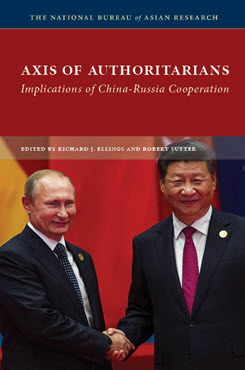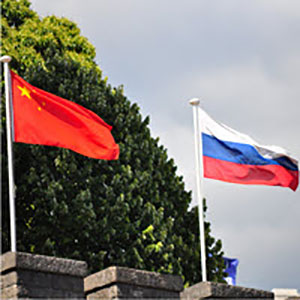Growing China-Russia Military Relations
Implications and Opportunities for U.S. Policy
This chapter assesses the main dimensions of the Sino-Russian defense relationship and discusses the outlook for further cooperation on security issues.
EXECUTIVE SUMMARY
MAIN ARGUMENT
Military ties between China and Russia have increased dramatically in recent years and look set to deepen in key dimensions, including regional security cooperation, arms sales, military exercises, and defense dialogues. Sino-Russian security cooperation presents challenges to U.S. interests, including to regional security balances, U.S.-led sanctions, and U.S. military freedom of action and access. These challenges would grow if China and Russia were to form a full-fledged defense alliance. Fortunately, this scenario is unlikely to develop, especially if U.S. policymakers prudently look for opportunities to constrain their defense ties, or at least to avoid strengthening them. Most likely, the future will bring expanded Sino-Russian defense industrial cooperation, joint exercises, and the deepening of regional security collaboration in select areas.
POLICY IMPLICATIONS
- In the short term, arms control issues give Washington a tool to divide China from Russia, given that U.S. and Russian officials share concerns about China’s growing nuclear power and strategic opaqueness.
- In the long term, the U.S. should apply more resources to evaluating Sino-Russian defense ties and ensure that U.S. defense dialogues with allies and friends comprehensively address this issue. Strengthening U.S. alliances and security partnerships with other countries is imperative since these networks provide the U.S. unique strategic advantages over China and Russia.
- Washington should discourage technology transfers and other exchanges that can enhance Chinese and Russian military cooperation by warning third parties that contributing to either country’s military power could decrease their access to U.S. defense technology and subject them to other security-related sanctions.
Richard Weitz is Senior Fellow and Director of the Center for Political-Military Analysis at the Hudson Institute.



